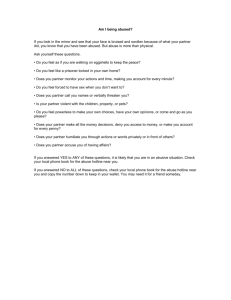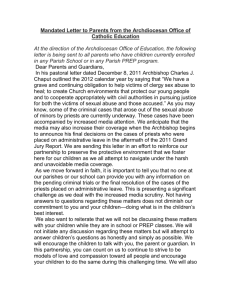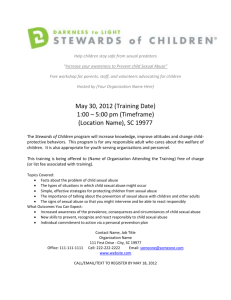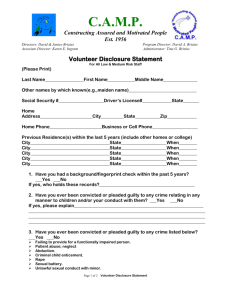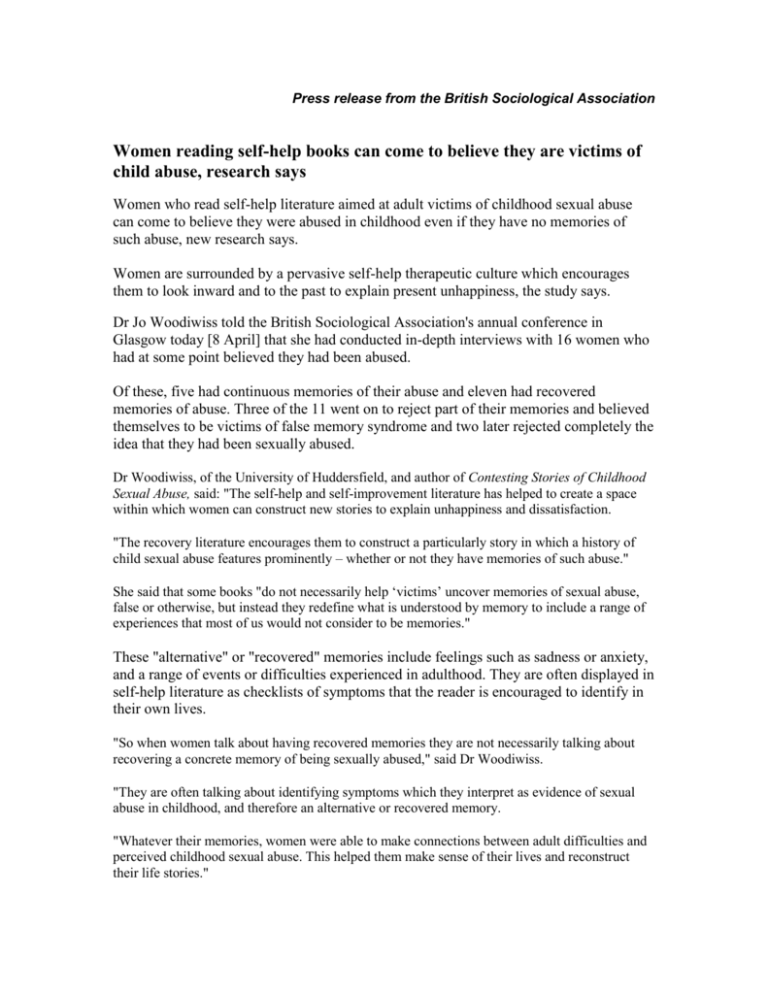
Press release from the British Sociological Association
Women reading self-help books can come to believe they are victims of
child abuse, research says
Women who read self-help literature aimed at adult victims of childhood sexual abuse
can come to believe they were abused in childhood even if they have no memories of
such abuse, new research says.
Women are surrounded by a pervasive self-help therapeutic culture which encourages
them to look inward and to the past to explain present unhappiness, the study says.
Dr Jo Woodiwiss told the British Sociological Association's annual conference in
Glasgow today [8 April] that she had conducted in-depth interviews with 16 women who
had at some point believed they had been abused.
Of these, five had continuous memories of their abuse and eleven had recovered
memories of abuse. Three of the 11 went on to reject part of their memories and believed
themselves to be victims of false memory syndrome and two later rejected completely the
idea that they had been sexually abused.
Dr Woodiwiss, of the University of Huddersfield, and author of Contesting Stories of Childhood
Sexual Abuse, said: "The self-help and self-improvement literature has helped to create a space
within which women can construct new stories to explain unhappiness and dissatisfaction.
"The recovery literature encourages them to construct a particularly story in which a history of
child sexual abuse features prominently – whether or not they have memories of such abuse."
She said that some books "do not necessarily help ‘victims’ uncover memories of sexual abuse,
false or otherwise, but instead they redefine what is understood by memory to include a range of
experiences that most of us would not consider to be memories."
These "alternative" or "recovered" memories include feelings such as sadness or anxiety,
and a range of events or difficulties experienced in adulthood. They are often displayed in
self-help literature as checklists of symptoms that the reader is encouraged to identify in
their own lives.
"So when women talk about having recovered memories they are not necessarily talking about
recovering a concrete memory of being sexually abused," said Dr Woodiwiss.
"They are often talking about identifying symptoms which they interpret as evidence of sexual
abuse in childhood, and therefore an alternative or recovered memory.
"Whatever their memories, women were able to make connections between adult difficulties and
perceived childhood sexual abuse. This helped them make sense of their lives and reconstruct
their life stories."
Dr Woodiwiss said that women do not simply adopt "ready-made" scripts or victim identities, but
engage with a body of literature that helps them to make sense of their lives and plan for the
future. That they ultimately construct themselves as victims of child sexual abuse said more about
society, and the lack of alternative, social explanations for unhappiness, than it did about child
sexual abuse, she said.
But while this helped women make sense of their lives, it also created difficulties. For instance,
some self-help books said that the women must heal themselves or they might go on to abuse,
which some found insulting.
Dr Woodiwiss cited the example of one interviewee, Beccy, who felt she needed to make sense of
the part of her life that related to sex. She had entered adulthood with no concrete knowledge of
sexual abuse in her childhood but came to identify herself as a victim of sexual abuse because she
had a problem with sex. This problem was Beccy’s only evidence and her only way to explain it
was to look to her childhood.
"The stories that women are able to tell in the 21st century say more about the world in which we
live and the pervasiveness of therapeutic culture, the harm story and the healing discourse than
they do about either ‘recovered memories’ or childhood sexual abuse, " said Dr Woodiwiss.
"Far from being liberating and empowering, women are more likely to find themselves trapped by
the stories they come to tell. Stories which for some are beginning to unravel."
For more information, please contact:
Tony Trueman
British Sociological Association
Tel: 07964 023392
Notes
1. The British Sociological Association’s mission is to represent the intellectual and
sociological interests of its members. The BSA is a Company Limited by Guarantee.
Registered in England and Wales. Company Number: 3890729. Registered Charity
Number 1080235



